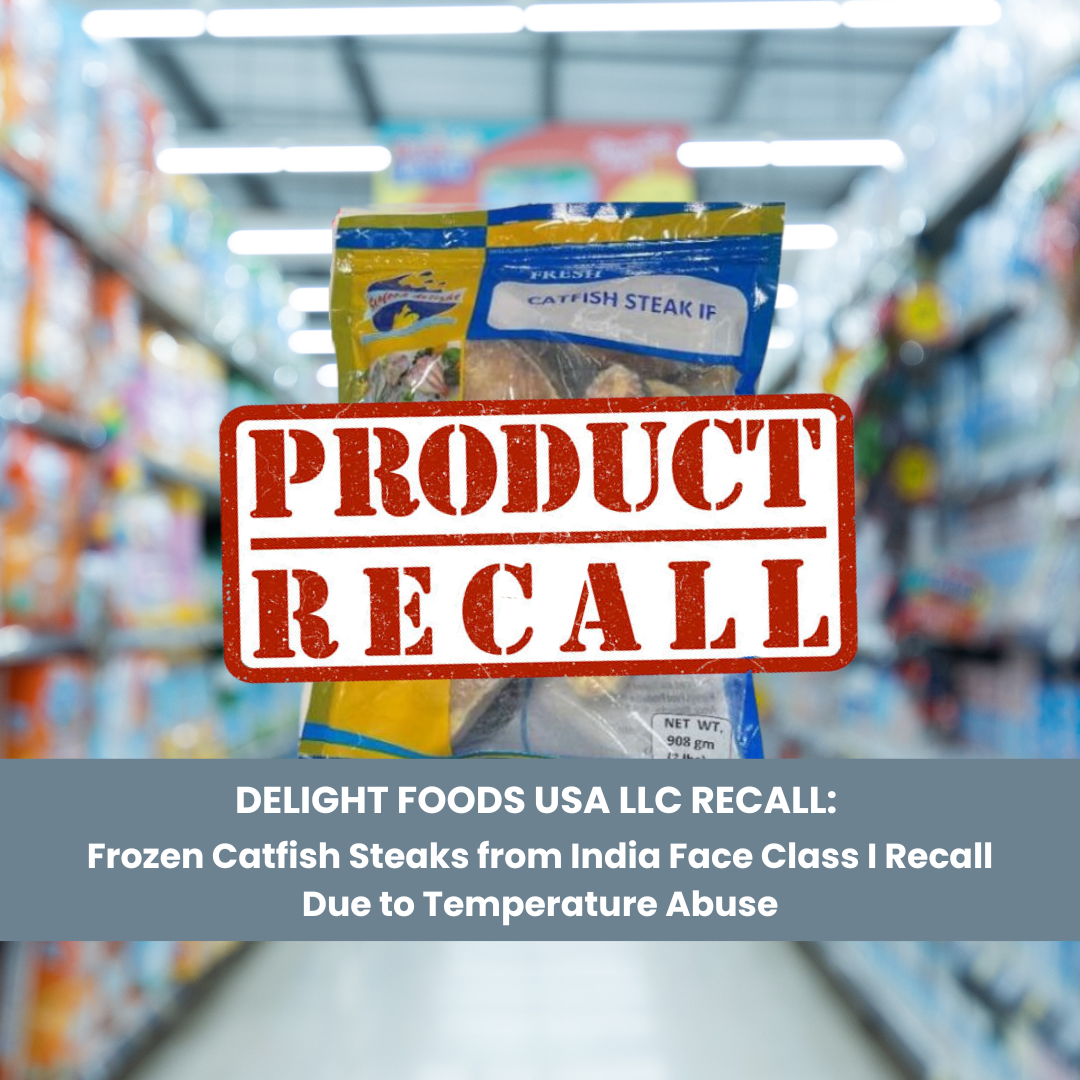Description of the product
Name of the Brand: Delight Foods USA LLC
Product Name: Frozen Catfish Steaks
Origin of the Product: India
Type of packaging: Vacuum-packed, frozen blocks (908 gm, or 2 lb)
Problem: Temperature abuse upon import
Class of Recall: Class I (Cause High Health Risk)






